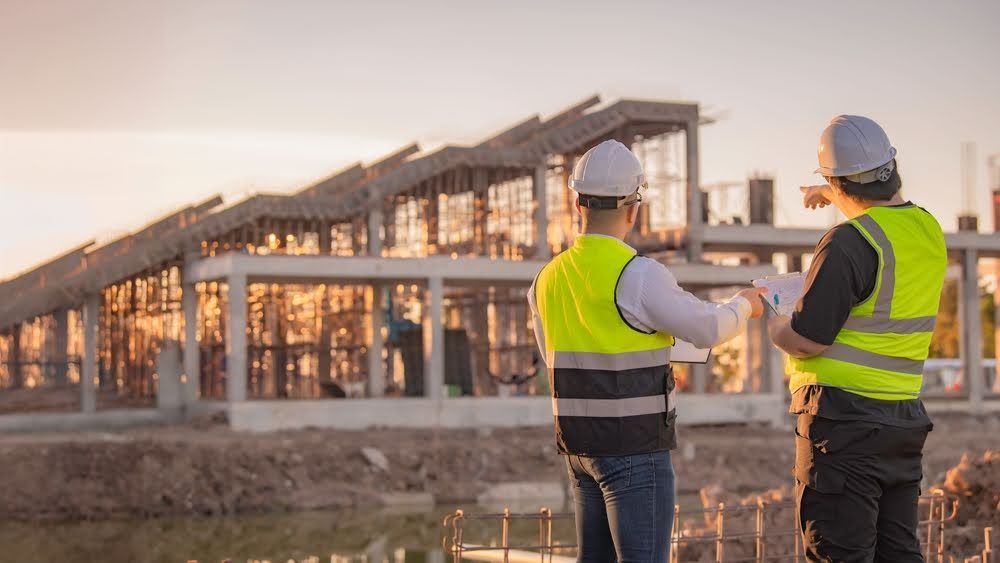How to Build Strong Construction Business Partnerships for Long-Term Success
The construction industry thrives on collaboration.
Whether you're managing large-scale infrastructure projects or handling specialized residential builds, construction business partnerships can be the key to long-term growth.
However, not all partnerships are created equal. At Pro Accel, I’ve learned that some will propel your business forward, while others can slow you down.
So, how do you build partnerships that last? It starts with alignment, trust, and strategy.
Choose Partners Who Align with Your Values and Goals
A good partnership is about a shared vision. You want partners who see the industry the way you do, who make decisions with similar logic, and who align with your long-term goals. Otherwise, you're setting yourself up for frustration.
Think of it like working with a subcontractor: if their standards for quality don’t match yours, conflicts are inevitable. The same applies to business partnerships. Whether it’s a supplier, contractor, or investor, they should complement your company culture and business philosophy.
Trust Isn’t Given—It’s Earned
Trust isn’t built overnight. It takes consistency, follow-through, and a lot of proving yourself over time. In construction, where timelines are tight and budgets are stricter than ever, keeping your word is everything.
If you say you’ll hit a deadline—hit it. If you commit to providing specific resources—provide them. This reliability fosters long-term confidence, making it easier to navigate challenges together.
And don’t underestimate the power of regular, open communication. A simple check-in can prevent small issues from snowballing into major problems.
Clarity Is Everything—Define Expectations Upfront
Vague partnerships lead to vague results. Before entering into any agreement, get crystal clear on what you expect from each other. Who’s responsible for what? How will success be measured? What happens if something doesn’t go as planned?
Transparency eliminates surprises and reduces friction. It also ensures accountability—if one side isn’t delivering, there’s no gray area about what needs to change.
This kind of structure is especially important in joint ventures or when teaming up with a subcontractor for specialized work.

Strategic Partnerships Fill Gaps—Not Duplicate Strengths
A common mistake in business partnerships is teaming up with someone who mirrors your skills. While that might seem like a safe move, it doesn’t necessarily make your company stronger.
Instead, seek partners who bring something new to the table—skills, equipment, market presence, or connections that complement your existing operations.
For example, if your company specializes in commercial builds but lacks expertise in green construction, partnering with an energy-efficient building consultant can open new doors.
If you’re trying to expand geographically, teaming up with a local contractor in that area might be the missing piece.
Smart partnerships offset weaknesses and create opportunities for diversification.
Keep the Partnership Strong with Regular Check-Ins
Even the best partnerships need maintenance. Business conditions change, new challenges arise, and expectations evolve. Regular check-ins help ensure that everyone is still aligned and that any issues are addressed before they become roadblocks.
Adjustments are inevitable—what worked a year ago may not work today. The key is staying proactive and making course corrections as needed. Strong partnerships aren’t rigid; they’re adaptable.
Final Thoughts
Successful construction business partnerships don’t just happen—they’re built with careful planning, mutual respect, and a shared commitment to success.
The right partner can help your business grow, expand into new markets, and tackle bigger projects with confidence.
At Pro-Accel, we understand the importance of strategic collaboration in the construction industry.
Whether you're looking for new opportunities or refining your current partnerships, taking a thoughtful and structured approach will set you up for long-term success. Contact us today!

Let’s Talk Construction!
Do you have a question about our construction consulting service? Email us to schedule a call for a free consultation to find out more about how we can optimize your construction company!
All Rights Reserved | Pro Accel | Website Built by GW Branding Group
Contact Us
We will get back to you as soon as possible.
Please try again later.











